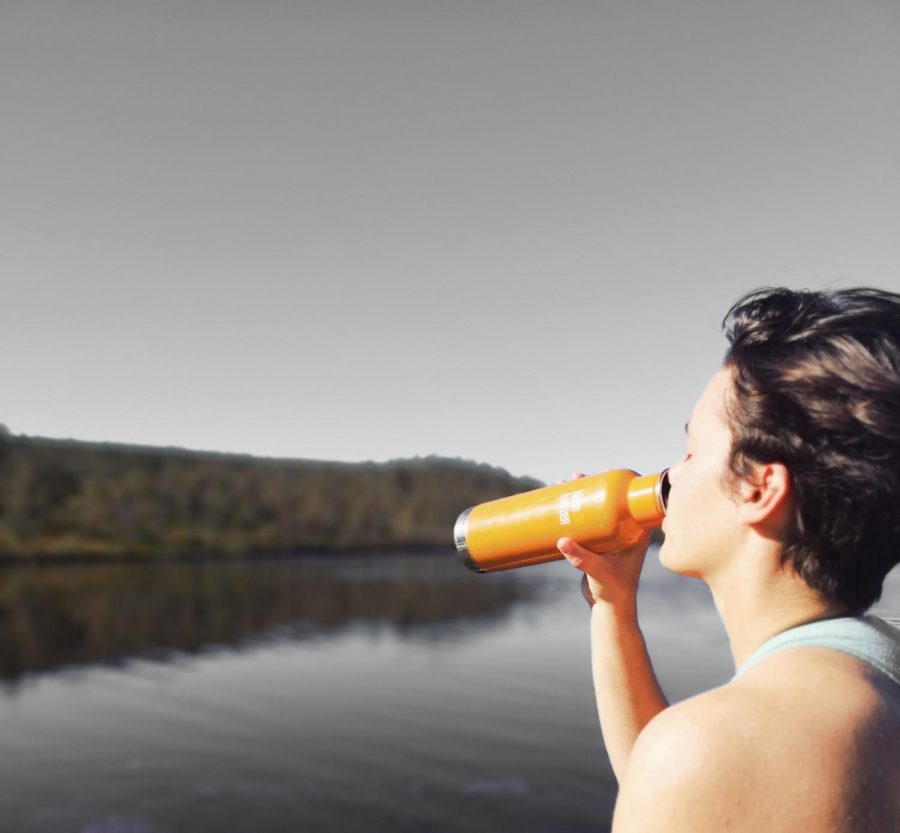Tips for better hydration and sleep
How to stay alert and tackle the day
Experiencing busy schedules, early mornings, and excessive screen time, there’s a lot of potential for Oakton students’ energy levels to be all over the place. Many students are mindful of this, and have heard about the importance of taking care of oneself in the sense of promoting alertness. This can include staying hydrated and well-rested.
Adequate water intake is not only important for physical health, but also cognition and how one feels. For instance, being dehydrated can contribute to decreased performance in school and increased irritability. Hydration can also affect body temperature regulation, digestion, and the possibility of migraines; there’s an ample list of reasons to drink up.
For students learning in person this year, though, there are added challenges to doing so, starting with wearing a mask covering one’s mouth for long periods of time. Senior Alina Galaria offers tips to still keep hydrated, noting that water fountains aren’t open, so bringing a supply of water to school is key. “Since it’s hard to remember to drink water with a mask I tell myself to take a sip between classes.” She continues, “especially during lunch I like to make it a goal to finish a certain amount of my bottle!”
As for staying well-rested, the importance is pretty clear for alertness. The more complicated topic of consideration may be how to actually get an adequate night’s rest. That starts with blocking out the time, but as for filling it ideally, research has shown that exercise during the day can promote a high quality night’s sleep, for instance by increasing slow wave, or deep, sleep. Just half an hour of movement could be sufficient for immediate improvement in one’s nightly rest.
If falling asleep in the first place is a struggle, consider testing the technique of military personnel who must do so under extremely stressful conditions. It involves intentional relaxation of facial muscles, and then the shoulders and arms, accompanied by deep breathing and further relaxation of the body in the chest, thighs, and downwards. It then calls for one to briefly try and cleanse their mind, and then iterate “don’t think” or picture other, more serene surroundings.
It’s important for students to stay hydrated and well-rested, contributing to an alert mindset with which they can tackle the day and ultimately experience life in full.
Sources: Oxford Academic Nutrition Reviews, Johns Hopkins Medicine, and Newshub
Hey, I'm Haley! I'm a senior, and I'm super excited to join the Editorial Board for my third year on the Outlook. I often write feature and news stories...







